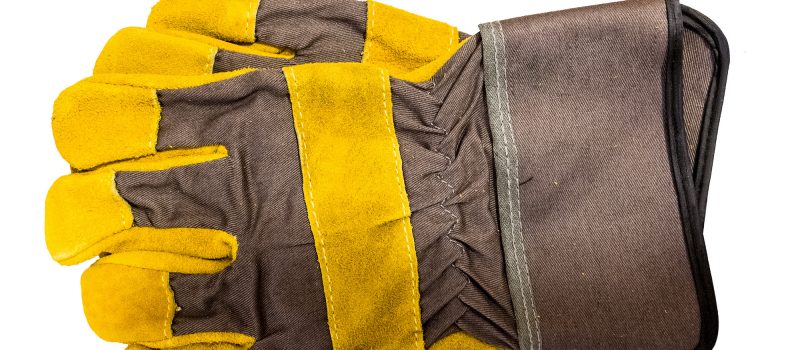Are you employed in the construction or mechanics industry? Do most of your workdays require you to be outside in tough conditions? If so, you’re probably aware you need work gloves to perform the duties asked of you.
These are an essential part of your uniform, which you should replace from time to time in order to make sure you have the best protection possible. After all, you won’t be able to work for a while if you end up with a burn or a bad injury!
As such, put some thought into the next pair of gloves you get. Whether these are the first work gloves you’re purchasing for a new job, or if you’ve been in the same industry for years, the right pair can make all the difference.
Here are seven things to consider before you buy a pair of gloves.
1. Know the Different Types of Work Gloves
Work gloves come in all shapes, sizes, and, most importantly, materials. You can purchase leather gloves or latex gloves, or even fabric gloves made with special insulation – or to be vibration-resistant.
To better understand each kind of glove, check out the details below:
- Leather gloves are best for hand protection from cuts or scrapes. It’s hard for sharp materials or rough surfaces to get through this material.
- Latex gloves are made to fit tight around the skin. These allow you to maintain control with small or sensitive tools and surfaces.
- Fabric gloves are arguably the most diverse. These can be a mix of natural and synthetic materials, made for various purposes – like insulation or vibration protection previously mentioned.
Thankfully, you don’t have to go through each kind of glove to find the best pair for you. Instead, look into more industry-specific details to help you narrow down your search.
2. Understand What Your Industry Needs
The options above may sound a bit excessive at first, until you consider this: a gardener can’t be expected to wear the same gloves a doctor or a dentist does, just as a welder or carpenter needs their own kind of gear, too!
This is why you need to do a little bit of research within your industry before you get new gloves. Talk to your new coworkers or see what well-known professionals have to say first. Then, use their advice to find the most suitable hand gloves for you.
3. Consider the Weather Conditions of Your Workplace
Once you’ve done your basic research, start thinking more about your specific role. It’s much different to be welding metal or other materials in an indoor, air-conditioned space than to be working on-site. This one detail may be enough to alter the kind of work gloves you need.
Also, consider the changing of seasons and the kind of clients you’re expecting to work with. If you live in Colorado, for example, you’re going to be working in hot summer weather as well as cold winter conditions. Meanwhile, those who live in Florida or Arizona are going to need some sort of heat protection all year long.
4. Think About Harsh Gases or Chemicals
Heat and sharp objects are not the only things you need to watch out for. Many work environments that require safety gloves do so because of harsh gases or chemicals. For these situations, look into special oil and gas gloves.
These will offer you the best level of protection in even the most extreme of conditions. They’re coated with chemical-resistant materials to help you hold out against any possible dangers while at work.
5. Check a Glove’s Maintenance Requirements
It’s one thing to know which kind of gloves you need, and another to make them last. Work gloves are an investment; you shouldn’t be going through too many pairs each year.
To maintain the integrity of their strength and overall structure, check a glove’s upkeep requirements before you buy. These will vary by brand and style.
Some manufacturers may suggest you don’t ever wash your gloves, no matter how dirty they get. Other may tell you to do regular cleanings and special tasks to keep your work gloves in top condition.
6. Put Your Skin and Safety First
Whether you’re willing to put in the extra work to maintain your gloves or you’re fine with getting new ones every couple of months, you still have to do your best work while on the job every day. To do this, safety has to come first.
This is both in terms of burns on the outside of the skin or any cuts that may penetrate the skin. Also, consider the kind of grip and handling functions you’re able to have with one pair of gloves versus another. The wrong pair could compromise how well you do what you do, and how safe you and everyone around you is.
7. Find the Perfect Fit
The final thing to consider is the fit you’re looking for. Typically, the snugger a pair of work gloves is, the better. But, if you expect to be wearing extra layers or two pairs of gloves at once, the fit will vary.
See if the gloves you’re interested in allow you to tighten them. Many will have a strap or string around the wrist in order to create a custom fit around your fingers and arm.
Start Shopping for Work Gloves
Maybe you’ve been training for your new career for years, or you kind of stumbled into this job opportunity. Either way, the only way to succeed is to have the right tools readily available.
This begins with your work gloves and other uniform pieces and further develops as you gain industry knowledge and experience.
Get more insights on the right gear here.

